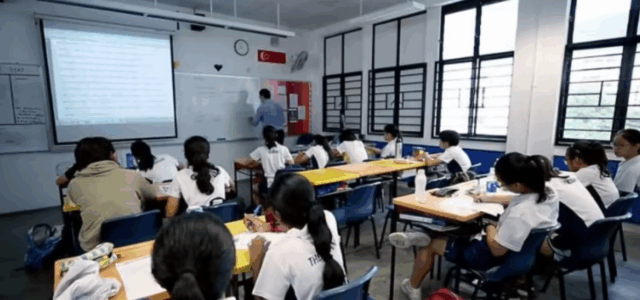Academic says caning as a form of discipline in schools should be re-examined, on the back of Sengkang Green bullying case
academic-says-caning-as-a-form-of-discipline-in-schools-should-be-re-examined-on-the-back-of-sengkang-green-bullying-case
#Academic #caning #form #discipline #schools #reexamined #Sengkang #Green #bullying #case,
SINGAPORE: Academic and child development specialist Dr Hana Alhadad is calling for the practice of caning to be re-examined, on the back of how the recent bullying case at Sengkang Green Primary School was handled.
Dr Alhadad, who holds adjunct faculty positions at the National University of Singapore and Singapore Management University, took to The Straits Times forum in response to the Sengkang Green bullying case, which saw three pupils suspended for bullying a classmate and one of them caned.
“This is a complex and painful situation, and I hope the incident prompts deeper reflection on how we respond when harm happens in schools, especially among children still developing emotionally and socially,” she wrote.
Dr Alhadad is a Senior Consultant at the Association of Women for Action and Research (AWARE) and a core team member of EveryChild.sg, a group dedicated to promoting the well-being and rights of children in Singapore.
She also serves on the boards of Beyond Social Services, the Singapore Civil Defence Force (SCDF) and the Singapore Police Force (SPF) through the Board of Visitors, and is a member of the National Crime Prevention Council.
In her forum letter, Dr Alhadad stressed that bullying, or any form of targeted harm, should be recognised as violence and met with structured, supportive responses that uphold children’s rights to protection and redress — for both victims and perpetrators.
“From a trauma-informed perspective, children’s distress cannot be managed solely through punishment. Those who experienced harm need more than reassurance, and those who cause harm need more than punishment. Both require consistent support, emotional safety, and guidance to understand the impact of their actions and make better choices,” she wrote.
She cautioned that punitive approaches such as caning could reinforce fear and shame rather than encourage meaningful behavioural change, adding that restorative practices offer a more constructive alternative.
“Repairing harm is not just about consequences, but understanding impact, rebuilding trust and making things right — a process that takes support, reflection and time,” she noted.
While recognising the need for schools to maintain order, Dr Alhadad urged policymakers and educators to re-examine disciplinary methods like caning, particularly when it comes to younger children.
“Evidence-based alternatives exist that better align with long-term developmental and relational goals, and reduce the risk of reinforcing harm,” she said. Such alternatives, she added, could include co-developed safety planning with families, ongoing psychological support for all children involved, and structured opportunities for dialogue, reflection and reintegration.
“These issues are not simple. They involve fear, pain, protection and grief. Still, we owe it to our children to be thoughtful, responsive and just. What we model in conflict teaches children what justice looks and feels like,” she concluded.
Her comments come as the Sengkang Green case continues to draw public attention. Following reports that a Primary 3 pupil had faced bullying and violent death threats, the school suspended the pupils involved and caned one of the students after a separate incident in which the victim was struck by a school bag.
Read Dr Alhadad’s forum letter in full HERE.
